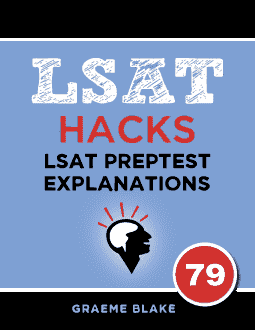QUESTION TEXT: Journalist: The new mayor is undeniably bold…
QUESTION TYPE: Necessary Assumption
CONCLUSION: The mayor isn’t introspective.
REASONING: She makes assertions with utter certainty and confidence.
ANALYSIS: The author is clearly assuming that “people who make confidence assertions aren’t introspective”. But, they utterly failed to link those two terms.
___________
- CORRECT. If this isn’t true, then we have no way to prove the mayor lacks introspection.
Negation: Introspective people do make assertions with utter certainty and confidence. - We don’t care whether the mayor is popular. We only care whether she is introspective.
- This doesn’t matter.
1. The argument did imply this is true, without stating it, but
2. It wasn’t the core assumption. The argument’s core claim is that assertions made “with utter certainty and confidence” are what show that the mayor lacks introspection.
[“these kinds of assertions…..demonstrate” is the language linking the evidence with the conclusion] - The author is claiming: confident ➞ introspective
This answer is just the incorrect negation of that, it says: “confident ➞ introspective”
This is a type of trap answer. It has the right words, but uses them in the wrong way. - Popularity doesn’t matter. The argument is only about the link between assertions and introspection. (Popularity was only mentioned as a reason for why the assertions might have helped the mayor win.)


I don’t understand how that is the leap in logic in the conclusion. If we are supposed to accept as fact that the new mayor is undeniably bold, how are we supposed to question that he is not introspective? The same support is used to demonstrate both claims, being that his assertions are made with utter certainty and confidence. Why is he undeniably bold? His assertions. Why is he not introspective? His assertions.
If there is a leap in logic in one I don’t see how the same leap doesn’t occur in the other (I picked C)
Good question. “They also demonstrate” indicates the conclusion. Utter certainty and confidence = bold. That’s simply the definition of the word, we need no further evidence. For instance, if someone starts swearing at their waiter for no reason, we need no further evidence to conclude they are rude. But if someone used that to conclude they were “stupid” or “a coward” etc we’d need to link rudeness with those traits.
That’s how this argument works. Introspection isn’t obviously opposed to boldness, the author has to assume it is.
So you’re allowed and in fact required to use the ordinary meaning of words on the lsat. Some things aren’t assumptions.
Note: This is an old comment but I wanted to clarify the point.